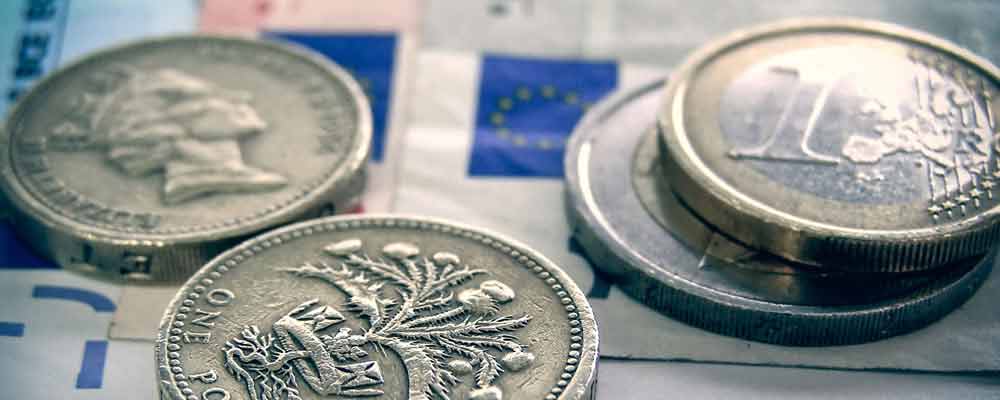- Pound Euro Hits 1.0911 – Euro Pound Hits 0.9162
- German Trade Deficit Widens – Euro Pares Some Gains
- UK Data Proves Mostly Positive – Pound Bolstered
The Pound Euro exchange rate clawed back some of its losses this morning in the wake of a widening German trade deficit and some predominantly positive UK data releases.
The UK balance of trade figure for July defied expectations that it would widen to £-4.7B today, instead printing at £-2.87B, down from June’s revised figure of £-2.91B.
Both imports and exports fell by 0.2%, putting imports in July at £52.50B and exports at £49.63B.
This shrinking deficit was near unchanged compared to the revised figure, however, so the market response was not overly significant.
The Office for National Statistics also reported that manufacturing production in the UK jumped 0.5% in July compared to June, beating expectations of 0.3% and the previous month’s flat reading. Annually, this index demonstrated a rise of 1.9%, again beating the forecast of a 1.7% rise and the previous month’s 0.6% jump.
Industrial production also advanced, albeit slightly less, with 0.2% growth demonstrated in July (as forecast) and 0.4% year-on-year.
The immediate effect of this report on GBP EUR was, however, mostly negligible, though it did allow Sterling to maintain its razor-thin lead.
German Trade Surplus Narrows, EUR Encumbered
Germany’s trade surplus was revealed to have narrowed in July, as German import growth exceeded export growth.
The Federal Statistics Office showed that exports rose a seasonally adjusted 0.2% in July whilst imports were up a massive 2.2%. Both of these figures printed weaker than anticipated.
The trade surplus itself narrowed to $19.5B, down from $21.2B in June and lower than the forecast of $21.1B.
These figures come after yesterday’s claim by the Ifo institute that Germany’s current account surplus would remain the largest in the world this year, disappointing investors and slightly hurting sentiment for the Euro, even after yesterday’s positive gross domestic product figures and Draghi’s mention of quantitative easing plans.
GBP EUR Forecast: Volatility Expected, Busy Week Ahead
That’s all this week for significant data releases and, seemingly, Brexit related soundbites. Next week, however, will feature the UK’s inflation figures, producer price index, house price index, employment figures, retail sales and (finally) the Bank of England’s (BoE) September rate decision!
Swiss Bank UBS Strategists have recently claimed that the BoE could cut the base interest rate to 0.10% over the coming months and add to the BoE’s already inflated quantitative easing (QE) programme.
John Wraith, strategist at UBS stated:
‘Since the outcome of the EU referendum, the UK economy has benefited from a weak sterling, performing much better than previously expected by the central bank and the markets. However, the trajectory still points to a slow in growth and we believe the economy is set to soften’.
This call for cutting interest rates is, however, somewhat contrarian, as with inflation running so high and the Pound under such severe pressure many economists are calling for a rate hike.
BoE rate setter Michael Saunders asserted last month that rates are too low, and whilst he is indeed already considered a hawk, the news still caused quite a stir, promoting renewed discussions regarding when and if the BoE should act.
Because of this there will likely be a great deal of volatility in the build-up and aftermath of this rating decision, with the Pound liable to swing either way depending on both the data prior and the reaction to said event.



